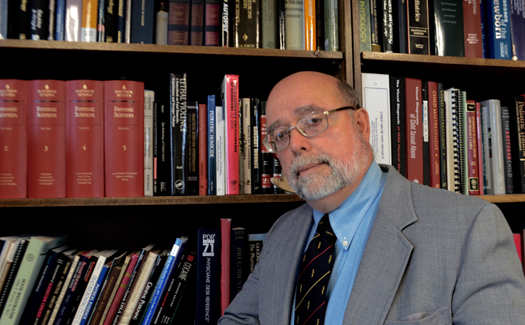Dr Andrew has extensive experience as an expert witness providing testimony, expert reports and literature review to jurors, prosecutors and defense attorneys.

This is the second a series of posts describing the areas in which Dr Andrew has provided expert witness testimony. In this post we discuss his expert testimony relating to timelines and also his advice to not limit the scope of the expert witness’ review.
The Microscope: a Clock NOT a Crystal Ball
The forensic pathologist is not infrequently called upon to render opinions as to timelines of specific pathological processes. Examples may include the age of a myocardial infarction or how long a clot has existed in the pulmonary artery. There is a scientific evidence base for these opinions in that much is known about the sequence of specific cellular events in response to tissue injury.
In a recent case. a pathology expert was disclosed who claimed to be able to predict the future based on what was observed in tissue sections. In specific, based on histological findings at autopsy, it was claimed that the decedent would not have survived any attempt at medical or surgical intervention had it been attempted even up to a week before death.
If this sounds fanciful, it indeed is. The microscope is a fairly decent clock, but a rather poor crystal ball. Juries may not know that, but novel theories generally do not fare well in court in the face of a well-researched cross examination that dispels any magical thinking to which they have been led.
Please Don’t Hide the Ball
The retained expert witness will base his/her opinion on the data provided as well as their education, experience and any relevant literature they may review. While an initial review of some of the relevant data may yield an opinion, as a case moves toward disclosures, deposition and certainly trial, the expert must be given the opportunity to review as much relevant data as is available.
I attempt to make this clear, but have, more than once (including quite recently) been unpleasantly surprised at deposition with information that should have rightly been part of my evaluation. The series of withering questions that follow: “Dr., didn’t you bother to ask for these records?” “Dr., don’t you think it would have been important for you to know this information?” “Dr., didn’t you just testify as to how important a complete history and thorough scene investigation are in reaching your conclusion?” are totally preventable.
Your expert should ask for everything you have on your case and may suggest things you do not have but can obtain. The unforeseen is just that, but avoid making things worse for your expert by limiting the scope of their review.

